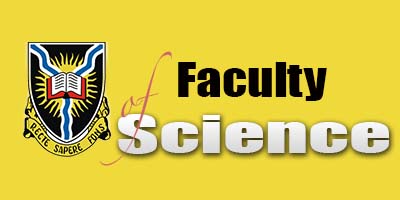History: Department of Computer Science
Name of Department COMPUTER SCIENCE
Date of establishment 1974
HISTORY
The proposal for the department was written in 1973, and the department was established in 1974. The first set of 21 Computer Science graduates finished in 1976. The department was conceived as a means of training manpower to meet the demand for increasing computerization.
The Department started with two academic staff, Professor Olu Longe and Dr. J. O. Adeniyi and six non-academic staff. Professor Olu Longe was the founding Head of Department.
Dr J.O. Adeniyi served as Acting Head of Department of Computer Science between 1988 and 1990. Between 1990 and 1991 the Department was headed by the Dean of the Faculty of Science, Professor Ayo Babalola of the Department of Physics, while Dr S.O. Ojo served as Departmental coordinator. Between 1991 and 1998, Professor Olu Longe served as Head of Department. Between 1998 and 1999 the Department was headed by the Dean of the Faculty of Science, Professor Idowu Iweibo of the Department of Chemistry.
Professor Adenike Osofisan first served as Acting Head of Department between 1999 and 2008. Under her leadership the Department began a postgraduate programme in 2000. The first PhD graduate of the programme graduated in late 2004. In 2007 the first PhD graduate of the University of Ibadan-University of Nancy exchange completed his PhD research at the University of Nancy in France. Upon graduation Dr. A.B.C. Robert returned to his job at the University of Ibadan.
In 2008, a team of student programmers from the department won the NMC-ACM National Programming Contest at the National Mathematical Centre, Abuja.
In 2010, the first PhD graduate of the double PhD agreement between the University of Ibadan and the University of Nancy successfully defended his thesis at the University of Nancy and the University of Ibadan. Upon successful defence of his thesis, Dr. O.F.W. Onifade returned to his job at the University of Ibadan.
In 2010, a member of the department Dr. Angela Makolo won the Best paper award at the PhD research consortium organized by the Nigerian Computer Society.
Dr B.O. Akinkunmi served as Acting Head of Department between 2008 and 2010. Professor Osofisan served as Head of Department between 2010 and 2012 when she was appointed as the first Director of the University of Ibadan Business School.
Dr. B. O. Akinkunmi again took over as Acting Head of Department from 2012 to December 2013. The current Acting head of Department, Dr. A. B. Adeyemo, took over from Dr. B.O. Akinkunmi from January 2014.
The Department is supported by twenty academic and ten non-academic staff. The staff are committed and hardworking. All academic staff members report directly to the Head of Department.
As at July 2016, the Department has 303 undergraduate students and _________ post graduate students.
PHILOSOPHY AND OBJECTIVES
Philosophy
The Department set out from its early days to produce graduates that would be create Information Technology Solutions to meet the needs of the Industry. As such our programme has its vision set on peddling the creativity of Information technology tools, that is backed up with a deep and rigorous understanding of computer science theory as opposed to a routine and context specific creativity. Apart from solid theory being the key to good designs, a good understanding of computer science theory will also enhance adaptability across platforms and products.
Objectives
The department trains students to create, adapt and manage computation tools that meet basic goals of correctness, efficiency, security, user-friendliness, fault-tolerance and intelligence.
“Computation tools” are broadly defined to include computer software, computer hardware, computer networks, Embedded and Real-time systems.
The undergraduate program in Computer Science gives the student a broad range of basic skills required to design, implement, adapt and manage Computer Software and Computer hardware to meet basic goals. A basic component of these skills includes Computer Programming and Digital Computer Logic Design for creating software and hardware respectively.
Theoretical courses like Automata Theory and Theory of Computation and a course in Software Engineering emphasize, at different levels of mathematical maturity, techniques that may be useful in modeling hardware, Software and hybrid systems. These different models enable a designer study efficiency and correctness of tools that are being modeled.
A course in Software Engineering emphasizes the processes leading to the creation of large software so that quality can be assured, while a course in Survey of Programming Language teaches principles, semantics, implementation and emerging paradigms. These concepts are a Prerequisite for building large software.
A course in Computer Architecture emphasizes the goal of designing computer hardware (CPU). Memory, Control Unit), that have efficient instruction sets. Issues like fault-tolerance are also addressed. A course in Operating system teaches how an Operating System is designed to efficiently and securely manage the resources in a computer system.
The philosophy continues to adapt to new developments in the field, such as the Cloud computing, Mobile Computing and Human Computer Interaction (HCI).
